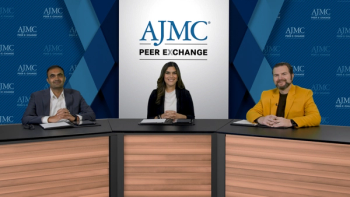
Expanding Horizons: The Present and Future of Bispecific Antibodies Across Oncology


Panelists discuss how recent FDA approvals for bispecific antibodies in oncology, particularly for hematologic malignancies like multiple myeloma and lymphomas, represent significant treatment advances, while highlighting expanding applications in solid tumors, autoimmune disorders, and infectious diseases as promising growth areas for this therapeutic modality.

Experts discuss how the availability of bispecific therapies has influenced treatment paradigms in oncology and how bispecifics fit into current treatment algorithms for hematologic malignancies and solid tumors.

Experts discuss which patient populations stand to benefit the most from recently approved bispecific therapies, identifying gaps or opportunities for further patient benefit, as well as the data gaps that exist in understanding the optimal use of bispecific antibodies across various cancer types.

Experts discuss the benefits of implementing and operationalizing bispecifics in the community oncology setting.

Experts discuss the most common logistical challenges encountered when implementing bispecific therapies as well as the primary barriers smaller community practices face in operationalizing bispecific antibody treatments.

Experts discuss what partnerships between academic and community settings look like with regard to bispecifics, highlighting the role academic centers play in supporting community practices with bispecific therapy protocols.

Experts discuss how institutions can develop standardized operational workflows that accommodate multiple bispecific products with different administration requirements, particularly as more products become available.

Experts discuss why it is critical to have standardized protocols in place for managing cytokine release syndrome (CRS) in patients receiving bispecific antibodies, outlining the key components of an effective CRS management protocol as well as best practices for transitions of care between settings when administering and managing bispecifics.

Experts discuss the role of technology, such as electronic health record (EHR) integration, in improving the operationalization of bispecific antibodies.

Experts discuss how institutions can address the resource and bandwidth challenges that come with administering complex therapies like bispecifics.

Experts discuss how payer and reimbursement considerations affect access to bispecific therapies in different practice settings.

Experts discuss the most promising applications of bispecifics in solid tumors and other emerging therapeutic areas.

Experts discuss how bispecifics might be incorporated earlier in the lines of treatment for certain cancers, the steps that can be taken to improve access to bispecific therapies in underserved or rural community settings, and how partnerships among academic centers, manufacturers, and community practices can help accelerate the adoption of bispecific antibodies.

Experts discuss innovations and advancements in bispecific antibodies that could transform their use in the next 5 years.



